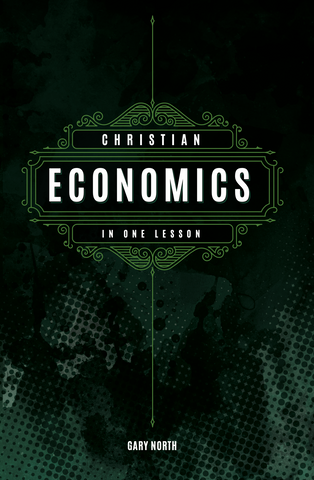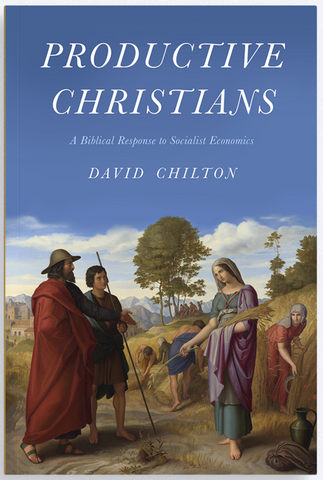“The welfare state is the oldest con game in the world. First you take people’s money away quietly, and then you give some of it back to them flamboyantly.” — Thomas Sowell
There are 42 million Americans enrolled in SNAP (Supplemental Nutrition Assistance Program). That’s 1 out of 7 Americans. We don’t know how many of them are not citizens. The multi-generational effects have been devastating. Welfare has become something of a status quo in the United States. It’s seen as an entitlement when the early stages of “relief” were to help people get “over the hump” until they found gainful employment. This reminds me of a scene from the film Cinderella Man about boxing legend James Braddock. He used a portion of his prize money to repay the government funds he had received while unemployed. “Going on relief” was considered a stigma.
We are often told that the Constitution supports “welfare.” An emailer tried to convince me that the United States Constitution was designed to promote wealth redistribution.
The Constitution, which we all revere, explicitly states that Congress has the power to levy taxes to provide for the common welfare—to include roads, bridges etc. The common welfare includes ALL people. To argue that taxes are all inherently stealing from you is to deny the very Constitution that is the foundation of the United States. I don’t agree with everything Prof. Krugman says but in this case he is right. We have the largest wealth inequality since the 1920s and that did in fact hasten the collapse of the markets and the advent of the Great Depression. We cannot hide our heads in the sand and pretend history is unimportant.
Since the income tax amendment wasn’t ratified until 1913, it’s hard to argue that our founders were pushing to abolish “wealth inequality” through the “General Welfare” clause because there was no mechanism to tax people directly and unequally (a progressive tax structure based on income).

Christian Economics in One Lesson
The ultimate form of causation in human history is ethical: right vs. wrong. Modern economists do not share this view. In fact, it goes beyond this. They openly reject it. They proclaim economic analysis as value-free—this is self-deception. It is a variation of an ancient temptation: “Hath God said?” Yes, He has. “Thou shalt not steal.”
Buy NowHere’s the introductory text of the “general welfare” provision in Art. I, sec. 8 of the Constitution:
“The Congress shall have power to lay and collect taxes, duties, imposts and excises, to pay the debts and provide for the common defense and general welfare of the United States; but all duties, imposts and excises shall be uniform throughout the United States;
The “general welfare” (not “common welfare”) clause is not about wealth redistribution. There are 18 powers granted to the Federal government in the full context of Article 1, Section 8, with no mention of wealth redistribution, education, retirement security, or health care.
As James Madison stated in Federalist 41, the phrase “general welfare” is immediately followed by “and is not even separated by a longer pause than a semicolon.” He went on to state that “[n]othing is more natural nor common than first to use a general phrase, and then to explain and qualify it by a recital of particulars,” which the Constitution does.[1] Read the list for yourself.
“General welfare” in constitutional terms means welfare that benefits everybody more or less equally. This is clearly seen in the provision “for the common Defense.” Taxes collected to defend the nation generally benefit everybody. The inequality comes in because some people have more to defend than others. If someone wants to deal with that inequity, I suggest you spend some time in Cuba.
Taxing some people so others can have decent housing, a college education, or healthcare is not general welfare; it’s particular welfare. Taking money from some people to give to others is not what the Constitution means by ‘general welfare.’
When did the constitutional definition of “general welfare” change to “particular welfare”? It happened in 1937 when the U.S. Supreme Court issued a landmark decision in Helvering v. Davis, which significantly shaped the interpretation of Congress’s power under the General Welfare Clause of the U.S. Constitution. In a 7-2 ruling, the Court upheld the constitutionality of the old-age benefits program established by Title II of the Social Security Act of 1935, affirming that federal spending for social welfare programs falls within Congress’s authority to tax and spend for the general welfare.

Productive Christians in an Age of Guilt Manipulators
First published nearly half a century ago, it is more relevant and more prescient than ever. Chilton’s crystalline prose and take-no-prisoners style is as entertaining as it is informative. This is the way books on economic issues should be written: biblical, understandable, and practical. This new edition also includes a 23-page appendix that Chilton wrote 43 years ago. "Studies in Amos" is an eight-part article series originally released in 1980.
Buy NowJustice Benjamin N. Cardozo, writing for the majority, emphasized that Congress has broad discretion in determining what constitutes the “general welfare,” stating that “Congress may spend money in aid of the ‘general welfare’ and that a fixed formula cannot draw the line between general and particular welfare.”
This case marked a pivotal shift toward a more expansive interpretation of federal power, laying the foundation for the modern American welfare state and reinforcing Congress’s power to create and fund social insurance programs. The Court’s embrace of a flexible understanding of the General Welfare Clause has continued to influence federal spending in a futile attempt to fix what, in many cases, are social problems. Thomas Sowell identifies a significant problem among black and white families.
Most black children were raised in two-parent families prior to the 1960s. But today the great majority of black children are raised in one-parent families. Such trends are not unique to blacks, nor even to the United States. The welfare state has led to remarkably similar trends among the white underclass in England over the same period. Just read Life at the Bottom, by Theodore Dalrymple, a British physician who worked in a hospital in a white slum neighborhood. You cannot take any people, of any color, and exempt them from the requirements of civilization—including work, behavioral standards, personal responsibility and all the other basic things that the clever intelligentsia disdain—without ruinous consequences to them and to society at large. Non-judgmental subsidies of counterproductive lifestyles are treating people as if they were livestock, to be fed and tended by others in a welfare state—and yet expecting them to develop as human beings have developed when facing the challenges of life themselves. One key fact that keeps getting ignored is that the poverty rate among black married couples has been in single digits every year since 1994. Behavior matters and facts matter, more than the prevailing social visions or political empires built on those visions.
The long-term effects of that 1937 ruling were not felt until the Great Society programs during the Johnson administration in the 1960s. Charles Murray, author of the book Losing Ground, explains what happened:
All these things that sounded so great on paper were not working. And guess what? That thing called labor force participation means you were available to work —either you were working or looking for work. For males, up until 1960, the rate had been close to 100%. It had been about 95% for males. Basically, that meant all able-bodied males. That started to drop, but not among affluent men. It began to fall among poor men.
We have been told to “trust the science.” When it comes to poverty and its cures, we’re told to trust the intellectuals. Sowell notes that “one of the most surprising aspects of a study of intellectuals “is how often intellectuals have been proved not only wrong, but grossly and disastrously wrong in their prescriptions for the ills of society — and how little their views have changed in response to empirical evidence of the disasters entailed by those views.”
[1] The Federalist No. 41: General View of the Powers Conferred by the Constitution (January 19, 1788).

